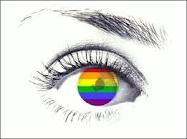LGBQ women are also at increased risk of interpersonal victimization (i.e., verbal, physical and sexual abuse) compared to their heterosexual counterparts. As a result, LGBQ women may experience internalized homophobia (i.e., negative feelings or attitudes towards oneself for identifying as LGBQ, based on living within a homophobic society), which is also linked to depression, anxiety, stress and greater alcohol/drug use. For individuals who identify as trans-masculine or trans-feminine, the risks of mental and behavioral health concerns increase significantly.
It is important to know that, while these mental health concerns may be overwhelming or discouraging, these feelings and stressors are not your fault. Remember that places like Howard Brown Health Center (HBHC) are here for you, and provide health and wellness services that are specialized for the LGBTQ community.
Reference: The Impact of Minority Stress on Mental Health and Substance Use Among Sexual Minority Women by Keren Lahavot and Jane M. Simoni.

 The following is written verbatim from the the
The following is written verbatim from the the  Lesbian, gay, bisexual, and transgendered individuals (LGBT) experience differences in receipt of health care services and are sometimes denied services according to a new
Lesbian, gay, bisexual, and transgendered individuals (LGBT) experience differences in receipt of health care services and are sometimes denied services according to a new